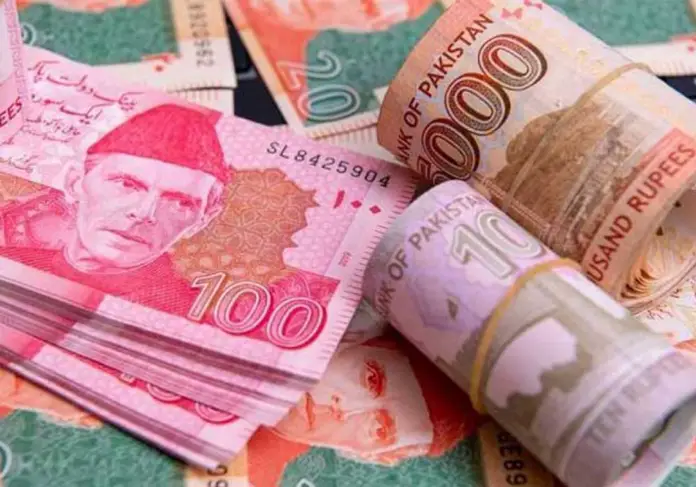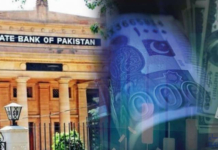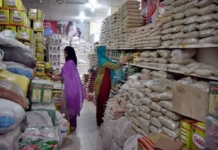The Pakistani rupee is expected to remain stable during the next week amid improved dollar liquidity from exporters, traders have said.
Investors, however, are likely to remain somewhat cautious, seeking more clarity on the political front and ahead of the next fiscal year budget, traders said.
The local unit consolidated its gains and rose to 197.59 against the dollar on Thursday. However, it bounced back the next day after the government hiked fuel prices to meet the International Monetary Fund (IMF) loan conditions.
Pakistan is seeking to secure a staff-level agreement with the IMF in June. The dollar selling by exporters also supported the local unit in the outgoing week. However, the rupee gave up gains and ended weaker at 197.92 per dollar on Friday weighed by a sharp decline in the foreign currency reserves.
“The rupee seems to trade on a stable note in the coming week. Markets will be closely watching the ongoing political turmoil in the country as when the ousted Prime Minister Imran Khan will announce the date for his next march,” said a foreign exchange trader.
“Caution is also likely to prevail ahead of the 2022/23 budget to be presented on June 10 (Friday) with investors expecting IMF conditions (fiscal consolidation) to dominate. Although, credibility on how to contain the budget deficit and shore up public finances will be a key,” he added.
Some traders see a renewed pressure on the rupee on an increase in fiscal-year-end dollar demand from importers and the corporate sector. The payments related to imports and profit repatriation in the pipeline.
The report about China’s $2.7 billion deposit placement has not calmed traders’ nerves, as they are seeing the deposit as not useful for either fiscal or external support.
The country’s foreign exchange reserves decreased by $378 million to $15.771 billion in the week ended May 27. The State Bank of Pakistan’s (SBP) reserves dropped to $9.723 billion from $10.088 billion, providing six weeks’ import cover.
Moody’s Investors Service downgraded its outlook on Pakistan to negative from stable on concerns, including a delay in the revival of the IMF loan programme.
The government raised fuel prices by 17%, the consumer price index inflation reached around multi-year highs in May, and importing banks were facing difficulties in opening fresh letters of credit as the international rating agency downgraded Pakistan’s ratings.
Pakistan’s trade deficit increased by 58% to $43.33 billion in July-May FY2022. The deficit remained 12% year-on-year and 7% month-on-month in May to $4.04 billion.







